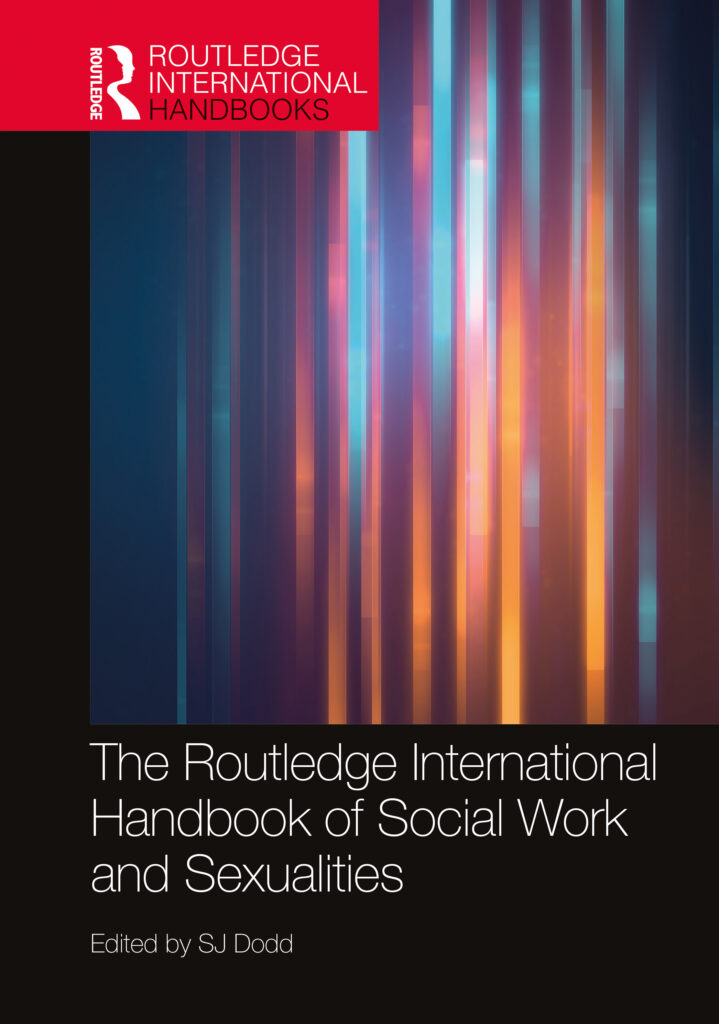Scoping the literature about LGBTQI migrants: a critical synthesis of knowledge produced about LGBTQI migrants and implications for social work
The contemporary global context of migration suggests a continued increase in migration due to people forced out of their countries of origin as a result of interconnected factors such as war, dictatorship, persecution, development, resource extraction, environmental disaster and human trafficking. These social, economic and political conditions shape the ways in which heteronormative1
and cisnormative violence compel lesbian, gay, bisexual, trans, queer and intersex (LGBTQI) people from the Global South to migrate to the Global North.
Indeed, over 70 of the 93 nation-states continue to criminalize sexual and
gender transgressions, with most of these situated in the Global South, such as Saudi Arabia, Indonesia and Nigeria. However, critical scholarship highlights, in site- and context-specific ways, the historical role of colonialism, imperialism and European empire-building in the criminalization, control and erasure of diverse Indigenous sexual and gender expressions and practices in these regions.
A growing body of scholarship engages in historical, policy and textual analysis while drawing from critical race, feminist (e.g. transnational and post-colonial feminist, women of color feminist, transfeminist, etc.), queer (e.g. queer of color, queer diasporic) and trans theories
This chapter presents key findings from a scoping review that synthesized the knowledge produced between 2007 to 2017 about LGBTQI migrants, with a
focus of those who migrated from the Global South to the Global North. The term “migrant” is used to include those who arrive in a host country with permanent status (e.g. refugees, LGBTQI Migrants and Social Work. Economic class, family class, etc.) or with precarious status (visitors, temporary workers, international students, refugee claimants, undocumented people, etc.). A total of 241 publications were included in the initial scoping review, with 56 from Canada, 74 from the US, 50 from elsewhere in the Global North and 61 from the Global South. A synthesis that focuses primarily on the Canadian-specific literature (Lee et al., in press), has been discussed elsewhere. Thus, this chapter focuses primarily on scholarship from the Global North, particularly from the US
and Europe. However, we draw from the entirety of the literature reviewed in order to more fully explore the implications for social work policy and practice with LGBTQI migrants. This highlights possible strategies for engaging in policy advocacy and community mobilizing as well as developing trauma-informed and anti-oppressive service delivery and specialized services for LGBTQI migrants.
There is an emergent and growing social work-specific literature about LGBTQI migrant realities informing how social work educators and practitioners in the Global North may better work with this population. Yet, there remains a lack of scholarship that examines the role of the social work profession in LGBTQI support and advocacy. This chapter therefore concludes with some critical reflections on the generative possibilities of the social work profession placing
Expertise
Sexual and gender identitiesMembers and SHERPA Teams
Edward Ou Jin Lee
Professor, École de travail social, Université de Montréal and chaireholder of Chaire Jean-Monbourquette sur le soutien social des personnes endeuillées

